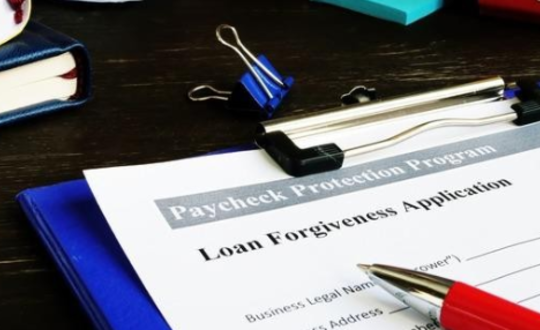The Paycheck Protection Program in Action: Questions About Loan Application Risks
Apr 10 2020
As previously described in this March 30, 2020 client alert, the Coronavirus Aid, Relief, and Economic Security (CARES) Act (the “Act”) amends Section 7(a) of the Small Business Act to include a new guaranteed, unsecured “Paycheck Protection Program” (the “PPP”). The PPP is an expansion of the Small Business Administration (the “SBA”) Economic Injury Disaster Loan program. The PPP provides for $349 billion of funding for loans to a broader segment of small businesses than those that would otherwise be eligible to receive SBA Section 7(a) loans.
Questions are arising about the legal risks that businesses may face if they apply for a forgivable loan to be funded by the SBA under the program.
One issue worthy of consideration is the set of certifications businesses are required to make in the PPP loan application. For businesses that are still operating, this includes a certification that “current economic uncertainty makes this loan request necessary to support the ongoing operations of the applicant.”
The SBA has not issued any guidance about how this certification should be interpreted by loan applicants. It is unclear what type of impact to a business’s operations would be sufficient to support this certification. It is also unclear the extent to which a business’s operations must be adversely affected for the loan to be necessary to “support ongoing operations of the applicant.” Businesses should carefully consider this required certification as they complete the loan application.
It is reasonably clear that the certification wording applies particularly to certain businesses directly impacted by the pandemic shutdown measures (such as struggling restaurants, performing arts venues and non-essential retail stores). For many other businesses, it is less clear that their situations meet the loan standards set forth by the PPP. Loan applicants should carefully evaluate whether they can accurately make this certification and how they will respond if they are later asked to provide back-up to justify that they met the required PPP loan standards at the time of their application.
Businesses should prepare relevant analyses of their lost revenues and other financial losses, payroll expenditures and other operating expenses that detail how each of these metrics have been adversely affected by the COVID-19 pandemic. Businesses should also consider any applicable insurance coverages they have that could mitigate their losses. As they pursue these analyses, businesses should generate associated documentation to support an argument that the loan in fact was necessary to support ongoing operations.
The loan application specifically states that most parts of the application will be subject Freedom of Information Act (FOIA) requests. Consequently, it is likely that government regulatory authorities, watchdog groups and even private individuals will exercise their FOIA rights with the goal of identifying business that received PPP loans who were not the intended beneficiaries of the Act or the PPP. There is meaningful media coverage about the oversight that will be pursued over loan proceeds made available through the PPP.
Businesses that pursue these loan funds without carefully scrutinizing and documenting their genuine eligibility may later face scrutiny and other legal consequences, including possible legal exposure under the False Claims Act (FCA), a federal law that imposes liability on persons and companies who make false statements to defraud governmental programs. In March, the Attorney General issued a memorandum prioritizing the investigation and prosecution of wrongdoing “related to the current pandemic.” And the DOJ has previously taken the position that false certifications made in connection with an application for an SBA-guaranteed loan can form the basis for liability under the FCA. The FCA is enforceable by the Department of Justice as well as in private actions by whistleblowers in qui tam lawsuits.
Here’s the bottom line: To mitigate any potential risks, businesses that elect to apply for a loan under the PPP must carefully consider the required certifications under the loan application and consider (even though this is not expressly required by the loan application) contemporaneously developing written documentation that supports the proposition that the COVID-19 pandemic is resulting in current economic uncertainty for the business and justifies that its loan request is necessary to support the business’s ongoing operations.